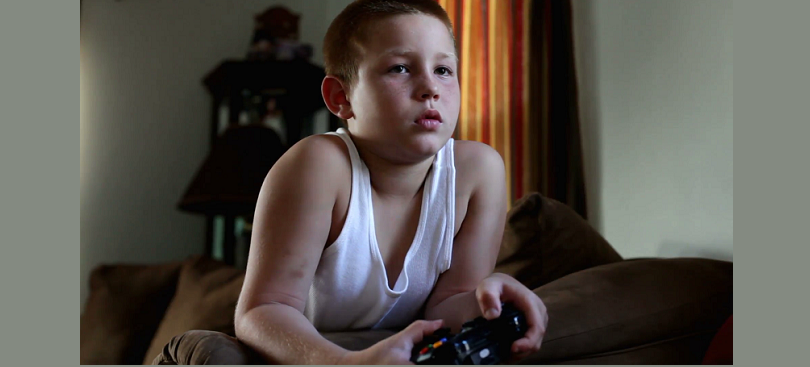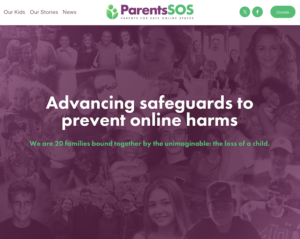![]() Meet Joe. Exhausted, Joe hauls himself out of bed after a night of gaming, following his Mom’s third attempt to get him up. If she’d just quit ragging on him, and let him sleep in. It’s not like school is this epic event that has to happen every day of the week. Missing a few days here and there is no big deal. She just doesn’t get it…gaming is everything for Joe, his whole life revolves around it. Gaming is where Joe can shine, where he’s cool, where he’s the Master of the universe. School sucks for Joe; it’s boring and stupid, and he really doesn’t understand why he needs to go. Joe can’t focus on anything at school, he’d so rather be gaming. Sometimes Joe games in his head in class, plans strategies for upping levels, designs his skins and weapons. School should really let him play video games, because gaming is where its at, not reading books and printing on paper. The future is gaming, and that’s what Joe’s going to be, a gamer who makes lots of money. Joe wishes his teacher could see how great he is when he’s gaming. He’s the King, and everyone else is merely his minions. He saves whole cities from destruction, kills the zombies and the bad guys; Joe rules the world when he’s gaming. Joe’s not good at anything at school, in fact Joe hates school.
Meet Joe. Exhausted, Joe hauls himself out of bed after a night of gaming, following his Mom’s third attempt to get him up. If she’d just quit ragging on him, and let him sleep in. It’s not like school is this epic event that has to happen every day of the week. Missing a few days here and there is no big deal. She just doesn’t get it…gaming is everything for Joe, his whole life revolves around it. Gaming is where Joe can shine, where he’s cool, where he’s the Master of the universe. School sucks for Joe; it’s boring and stupid, and he really doesn’t understand why he needs to go. Joe can’t focus on anything at school, he’d so rather be gaming. Sometimes Joe games in his head in class, plans strategies for upping levels, designs his skins and weapons. School should really let him play video games, because gaming is where its at, not reading books and printing on paper. The future is gaming, and that’s what Joe’s going to be, a gamer who makes lots of money. Joe wishes his teacher could see how great he is when he’s gaming. He’s the King, and everyone else is merely his minions. He saves whole cities from destruction, kills the zombies and the bad guys; Joe rules the world when he’s gaming. Joe’s not good at anything at school, in fact Joe hates school.
Joe is a typical 10-year old boy who plays video games pretty much all of the time. He starts when he gets home from school, games through dinner and into the night, often until 3 or 4 in the morning. Lack of exercise and overstimulation from gaming, resulted in Joe being diagnosed with adhd at age 6. Joe only misses school 1 day every other week, but is often late. While Joe’s parents are concerned about his gaming, and try to make him go to bed, Joe reacts with yelling at them and telling them they are mean and don’t understand how important gaming is to him. Joe’s parents are typical too in that they too are caught up in their own virtual worlds, Mom on Facebook and Second Life, and Dad into gaming, and really into porn. In their attachment to their own devices, Joe’s parents have detached from him and each other, resulting is pervasive family neglect. Joe’s family is termed a “virtual family”, where everyone is plugged in, zoned out and ignoring each other, and little else happens other than screens. While Joe’s parents manage to work, and make food appear from time to time, evenings and weekends are pretty much spent isolated from each other in separate rooms, everyone being entertained with their screens.
What Joe and his parents don’t understand is that their brains are being wired for high speed, for passivity and laziness, and for eventual failure on all counts. It won’t be long before Joe drops out of school, and one or both of his parents misses one day too much at work. Then Joe’s family will collapse, implode, require some sort of social service intervention that hasn’t been invented yet. Understanding what is going on in the bodies and brains of Joe’s family is key to vision their future path on this planet. The brain makes and rewires itself based on what is happening in its’ environment, and the body is a product of activity. If the brain and body are being stimulated by healthy activities including movement, touch, human connection, and nature, 4 critical factors that optimize development and learning, then brain/body development is diverse and varied, and responsive to a variety of daily challenges. When the brain is engaged in mindless entertainment and the body sedentary, the frontal lobes aren’t utilized and consequently atrophy from disuse. This “de-evolution” of the human brain and dissolution of the body from screen overuse, creates significant issues for Joe, impairing his physical, mental, social and cognitive development, and actually threatening Joe’s very existence.
Physically Joe is sedentary, unfit and obese, and likely will go on to develop diabetes. As gaming dramatically raises Joe’s adrenalin and blood pressure, it puts undue load on his heart, as does the stimulant meds Joe has been taking for his adhd. Lack of sleep puts Joe at further risk for cardiovascular events including early heart attack and stroke. Mentally, with limited frontal lobe function, Joe is reactive and impulsive, acting without empathy or compassion for others. Socially Joe is aggressive, defensive, defiant and at times violent with his parents, peers and teachers, as gaming has wired his brain to view all situations as conflict. Due to sexualized content inherent in video games, Joe views girls and young women as sexual objects which he disrespects, denigrates and controls. Because Joe doesn’t go outside and play anymore, and really has no friends other than through gaming, his social skills are wholly lacking and deficient. Cognitively Joe’s limited ability to access his frontal lobes has negatively impacted his executive function, causing deficits in attention, memory, concentration, and inability to understand consequence to actions. In school, Joe cannot focus on or remember what the teacher is saying, is distracted by extraneous noise and visual stimulation, has little energy and is always sleepy, and simply cannot learn.
So how can we help the Joe’s of this world? How can we intervene when we see families like Joe’s going off the rails into virtual oblivion? First and foremost, families cannot do what they do not know. In this day and age of ubiquitous screen overuse, it is imperative that health and education professionals provide families with research based information on the negative impact of screens on the developing child. This information empowers parents and children to make healthy choices which will sustain, not destroy, their family. Read the Parent Unplug’in Brochure, and pass this important information onto your friends and family. We can work together to create sustainable futures for all children.
Written by Cris Rowan, pediatric occupational therapist, international speaker, and author of “Virtual Child” book, Gamer Brain compiles data from over 200 assessments of children who play video games. Please review Zone’in Fact Sheet to gain additional research information regarding the harmful effects of gaming on child development and learning. Cris can be reached at info@zonein.ca.




